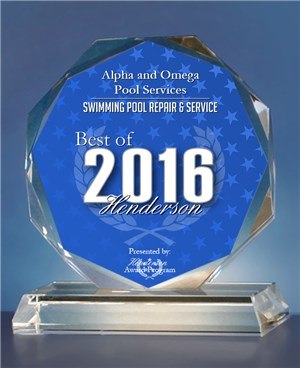Pool Cleaning FAQs
How often should my swimming pool be cleaned?
On-going pool cleaning and maintenance keep your pool safe and enjoyable. It also protects your equipment from deteriorating too quickly. Some pool cleaning and maintenance tasks may need to be performed weekly, some monthly, and some seasonally. For example, many pools in Henderson, NV need to be vacuumed once a week to keep the pool clean and clear of accumulating debris. Read more about our pool cleaning services.
What happens when pH is too low in my pool?
If the pH is too low, it could create a situation where the chlorine in the pool isn’t as effective and could create a health hazard. Bacteria or other pathogens in the water may not be properly dealt with. Read more about pH levels.
What happens when pH is too high in my pool?
High pH levels in water mean that it is acidic. If the pH level is too high, it can cause skin irritation and corrode metal parts of your swimming pool. Read more about pH levels.
Why do you need to acid wash your pool?
If you seem to have problems with algae blooms each year (which can happen easily in spring and summer in Henderson), or if you haven’t had your pool drained for 3 years or more, an acid wash is recommended. An acid wash will remove small stains, mineral deposits, build up, and any last traces of algae. Read more about our acid wash services.
When should you drain your pool?
Over time, dirt, body oil, and more build up in the water and cause problems. Therefore, it is recommended to drain your pool every 3-4 years. Additionally, you’ll need to monitor total dissolved solids (TDS) and calcium hardness. If TDS exceed 1500 parts per million (ppm), then your pool water is due for replacement. Learn more about pool draining.
Why is my pool cloudy?
Cloudy pool water is often a result of the pool needing a boost in the chlorine level. Also, cloudy pool water may mean that the pH level or the total dissolved solids (TDS) levels may be too high. Learn more about cloudy pool water.
How do I get rid of algae?
Most algae can be removed by using higher chlorine levels, pool brushing, algeacides, and acid washes. However, the method used will depend on the type of algae in your pool. Learn more about algae removal here.
Why is my pump motor leaking? And what can I do to fix it?
The motor usually has 2 main places where the leak occurs. It may be the seal plate gasket if you see the leak on the housing unit. If you see the water dripping from below the motor, it’s time to replace the pump seal, and I recommend replacing the seal plate gasket and lid O-ring at the same time since eventually they all wear out. The leak could also be from the CPVC nipple that is threaded into the top of the motor, and that should be re-piped.
Why is my pool pump not working?
Check the power to the motor first or see if the breaker has tripped. If there is power, then check the capacitor. Usually, if the capacitor is bad, it will make a humming sound for a few seconds then shut off. If there is no sound, check that the wires in the motor are still connected properly and didn’t come loose. If still no response, it’s probably time for a new motor – I’d recommend an Intelliflo Variable Speed Pump which will usually pay for itself in 12-18 months by saving you on utility bills each month.
Why will my pool pump not prime?
When your Pool Pump isn’t Priming, In most cases air is being drawn in, and it could be some of the O-rings in the Jandy valve or possibly the lid. Priming problems could also due to the CPVC nipple that connects the motor to the filter (threaded on top of the motor) needing to be re-piped. Another possibility is that the impeller could be clogged. Finally, maybe the skimmer basket or pump basket is full or even a clog in the lines could be the cause.




We Are Licensed and Insured! Nevada State
Business License: NV20091621874
Insurance License: #0510559
-2.png?width=320&height=80&name=main-logo%20(1)-2.png)
